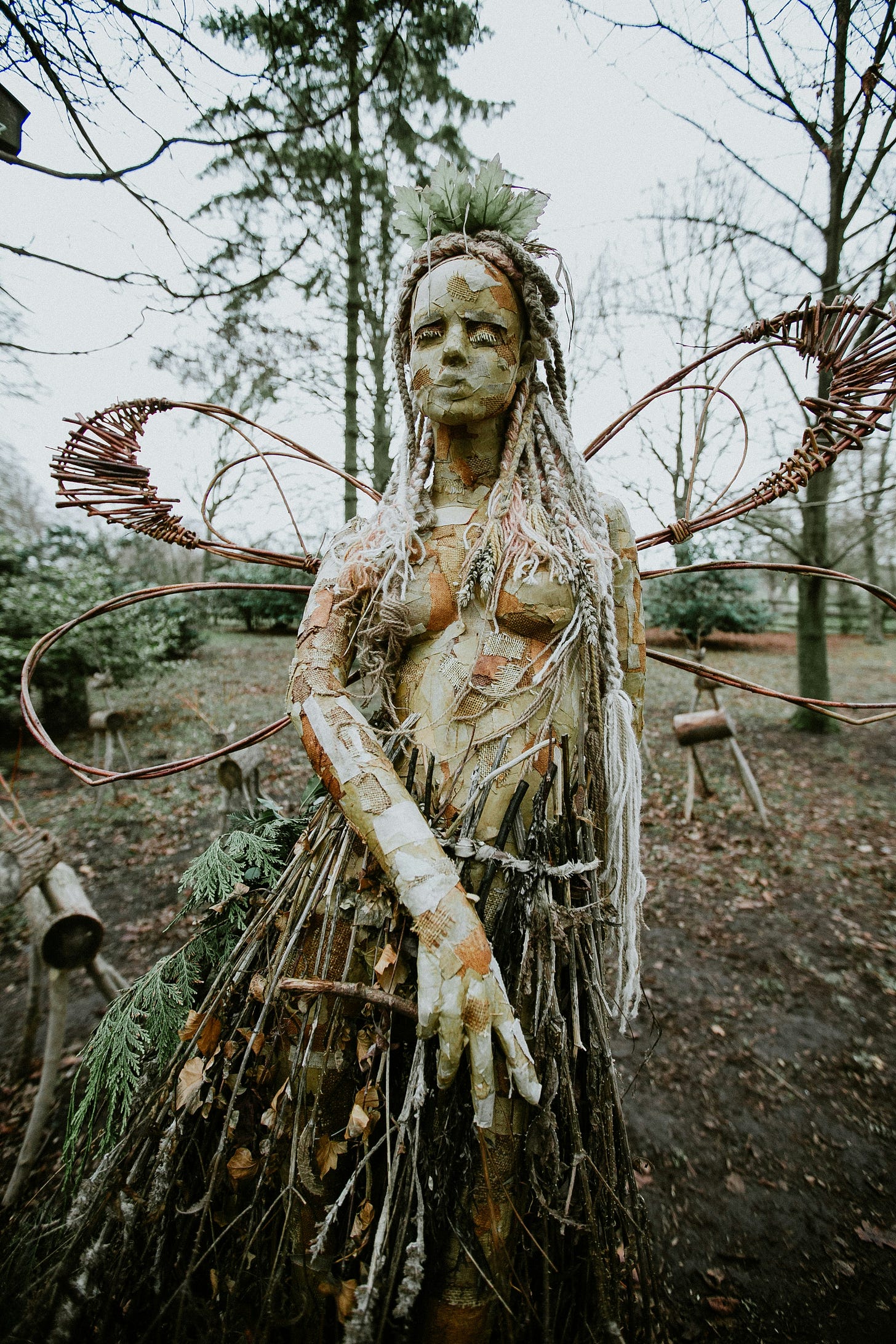Hunch, sixth sense, instinct, gut feeling, lately I’ve been thinking about intuition. Intuition as an ecofeminist practice. Intuition as a state of flow, intuition as a tuning in, intuition as conversant with the more than human, intuition as epistemology, intuition as understanding beyond language, intuition as vivid dream state, intuition as empathy, foresight, a kind of wisdom.
Am I scaring you yet? Good.
For me, the making of poetry is often instinctive, driven by intuition, a strong sense of needing to follow a hunch to grasp the inexpressible, the unseen, the truth of something and make it material. Maybe I’m old fashioned, but it’s a way of making poems that I’ve arrived at (intuitively, ironically), having had no formal training in writing poetry. I do know that intuition or common sense are learned, framed in ways that are highly loaded and coded by identity and lived experience, but there is something important for me about instinct and trust, in all its potentially problematic complexity, perhaps precisely because intuition is an (eco)feminist act. Instincts are a compass, feelings that point the way - they can be our latitude and our longitude – and intuition is a practice.
Intuition has been diminished precisely because it’s been categorised historically as an especially female ability. It has been devalued because it (apparently) bypasses conscious reasoning in favour of instinctive experience. Of course, intuition can be dangerous, based as it is on feelings rather than facts and subject to the vagaries of individual interpretation and god knows we need facts in this so-called post-truth moment we find ourselves in. Denigrated as subjective, unscientific, lacking in analytical rigour and (most dangerous of all) as variable as the contours of our fingerprints, it’s difficult to describe and contain, subdue and keep under control. But ‘the body,’ as Bessel van der Kolk has taught us, ‘keeps the score.’ We recognise what we need to do to stay alive. Intuition is felt in the body, it is linked to women’s need to be attuned to the reactions and emotions of men, functioning almost as survival instinct. Intuition can be empowerment, deep recognition of need.
If one of the gifts of poetry is at least partly the ways it can access and express the subconscious, through sound, metre, image, then the poem is one of the places we may find intuition. The way the poems that we feel most powerfully may reach us not through the organisation of words on the page but through the atmosphere of a piece or the layering of ideas and symbols that give shape to what had previously felt ineffable. Intuition seems a natural place to land for feminist ecopoetics, concerned as it is with connecting ourselves deeply to our environment. Instinct and intuition can help us navigate complexity, explore embodiment, thriving on the interconnectedness of life on earth, and the ways we interpret the world. Intuition—a mode of knowing that emerges from emotional resonance and embodied experience—offers a vital counterpoint to rational, extractive paradigms. Valuing intuition allows for creative expression that resists domination by linear logic, opening space for transformative poetics.
Intuition as clarity, collective unconscious, attunement, reciprocity, call to action.
Whiteway
The land is dreaming again,
white as a thin shelled egg,
cloud shoulder, quickthorn, stone axe.
Ancient woman with cargo of salt.
Not bleached or alabaster, not
ivory or ashen, pearly, pure or ice.
But white as mycelium strands
digging at limestone
to make a road on the ridge.
The land says listen and merge,
like ammonite held in oolite.
How rock wants a wet body to make fossil.
Such are the things we’ve forgotten,
adrift from the otherworld
of mole, cave, worm.
Whiteway’s memories of kin’d —
a sinuous line that pulls us back, dwells
in our unions and uncertainties.
To be with the season,
dream the road, says the land.
Walk us back to ourselves.
Notes
Bessel van der Kolk The Body Keeps the Score: Brain, Mind, and Body in the Healing of Trauma (Penguin, 2014)
‘Whiteway,’ first published in Modron Magazine (2024)


I love this. My intuition was adamant there was no Big Bang, that it was a futile conclusion of logic. Kept it locked up in the jar of secrets with all the other don't say that secrets - ditched in an abandoned underworld.